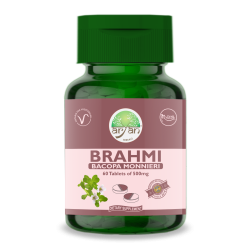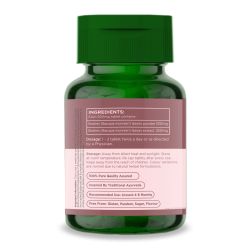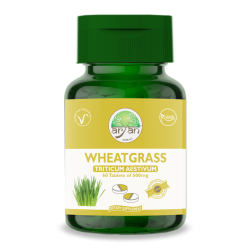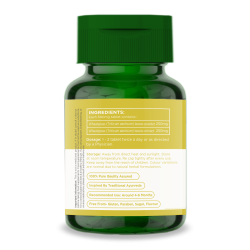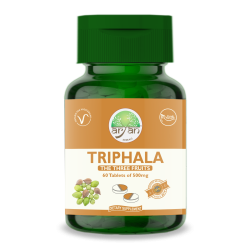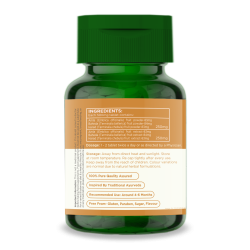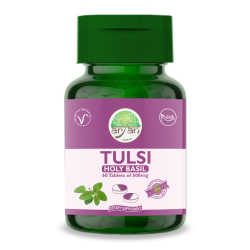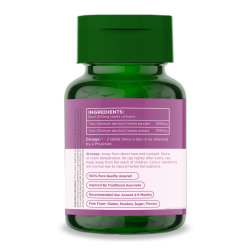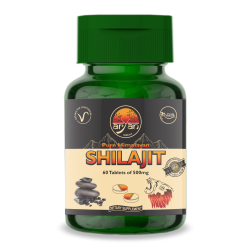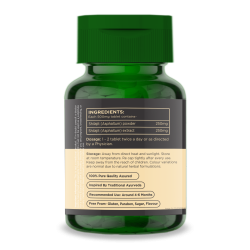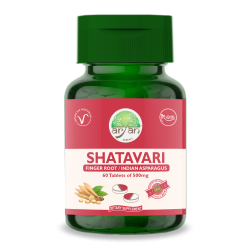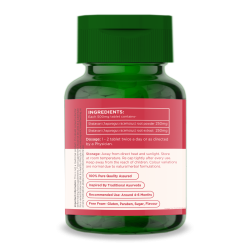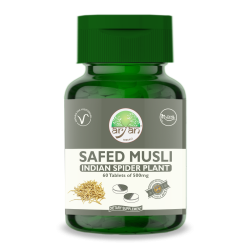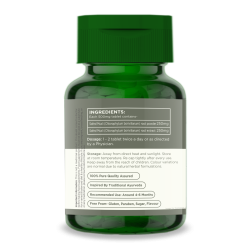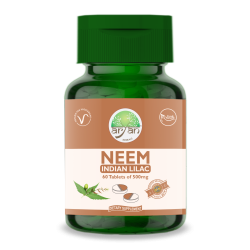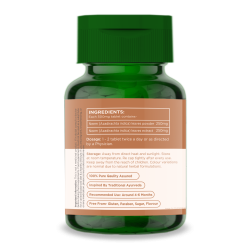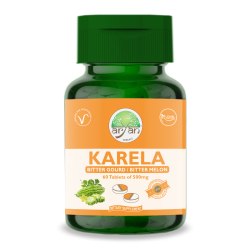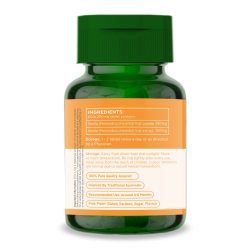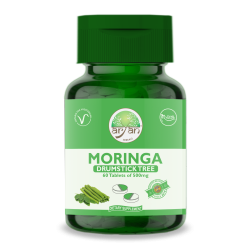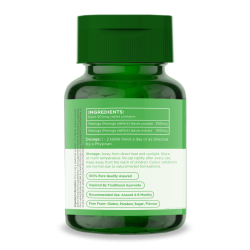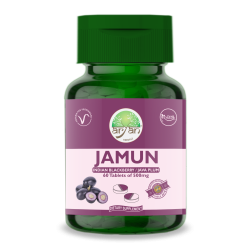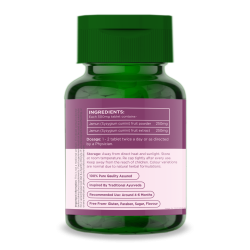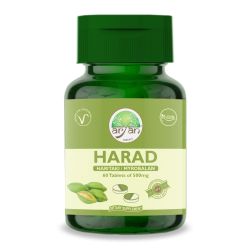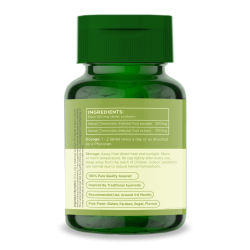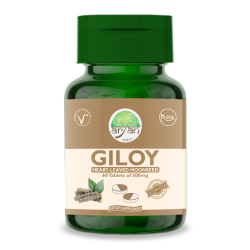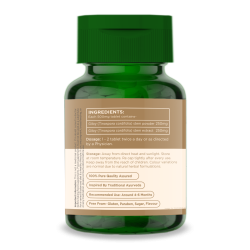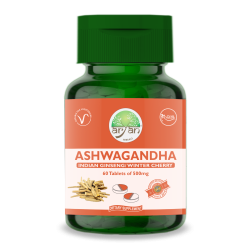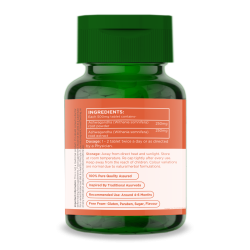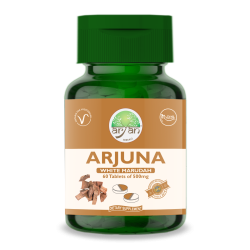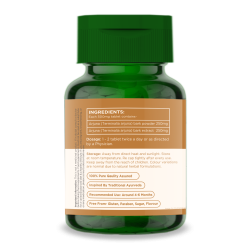Description
Brahmi, also known as the magical herb, is considered to be nature’s gift to mankind. For centuries, Ayurvedic medicine has used it to treat people for their day to day woes such as stress, anxiety, exhaustion, lack of sleep etc And with an abundance of antioxidants, iron and amino acids, it’s no surprise that Brahmi is one of the most powerful herbs in Ayurvedic healing. It is classified as a rasayana i.e. rejuvenation in Ayurveda and expected to promote physical and mental health, restore the body and increase longevity. It has been glorified over time for its dual capacity to energise and calm at the same time.
- New
Description
Wheatgrass is the young grass of the common wheat plant called triticum aestivum. This edible grass is either juiced into a Wheatgrass shot or milled down into a fine green powder that used to create various products. In the Ayurvedic system, its believed to be a natural liver cleanser and detoxifier, an antioxidant to reduce free radical damage and a blood strengthener, which can help give you a boost of energy.
Traditionally known benefits:
- Believed to help in boosting the immune system.
- In some traditions its used for restoring fertility.
- May help with blood sugar regulation.
- New
Description
Triphala (/triːˈfɑːlə/ or /triːˈfælə/; Hindi/Sanskrit: त्रिफला, triphalā [trɪˈpʰɐlaː], “three fruits”) is an Ayurvedic herbal rasayana formula consisting of equal parts of three myrobalans, taken without seed: Amalaki (Emblica officinalis), Bibhitaki (Terminalia bellirica), and Haritaki (Terminalia chebula).
- New
Description
Tulsi or holy basil (Ocimum sanctum or Ocimum sanctum Linn) is an important herb in Ayurvedic system, believed to help fight common colds, bronchitis, diarrhea, stomach disorders, headaches, inflammation, arthritis, heart disease, skin diseases, eye diseases, various forms of poisoning, insect bites and even malaria etc. Different parts of the herb have been used medicinally, including the leaves, stem, flower, root, seeds and even whole plant.
Traditionally known benefits:
- Known to have anti-inflammatory properties.
- It may help to improve cognitive function.
- Believed to help with diabetes and blood sugar imbalance.
- New
Description
Aryan Herbals Pure Himalayan Shilajit Tablets- 60 Tablets of 500 MG
- New
Description
Shatavari, or Asparagus racemosus, has been used for centuries in Ayurveda to support the reproductive system, particularly for females, and as a support for the digestive system, especially in cases of excess pitta. Translated as “having one hundred roots” and also referred to as meaning “having one hundred husbands”, Shatavari’s name gives reference to its traditional use as a rejuvenative tonic for the female reproductive system. This support is not only for the young woman, but also for women in their middle and elder years, to help them gracefully transition through the natural phases of life, including menopause.
- New
Description
Safed Musli is one of the wonders of Ayurveda and has small white flowers. It is believed to have many medicinal properties. In many traditions Safed Musli is believed to help in the production of testosterone and help treating impotency and sexual weakness among males. Regular usage is also believed to enhance the immune system.
Traditionally known benefits:
- It may help with physical weakness and debility.
- Believed to help in gaining muscle strength.
- Known to help in reducing fatigue and provides strength to the body.
- New
Description
Traditionally, Neem (Indian Lilac) has been an integral part of Ayurveda for its various health benefits. Nimbi din compound derived from the Neem tree is known to show great potential for its anti-inflammatory and anti-microbial properties. It’s believed to encourage development of a healthy immune system.
- New
Description
Not much needs to be said about this vegetable, though it has a rigid surface and is bitter in taste, bitter melon is believed to have a host of medicinal properties including helping with balancing and regulating blood sugar level. Though it’s traditionally believed to be “A healthy way to start the day”, due to bitter taste not many people like to consume it directly, though its benefits far outweigh the unwelcome taste.
Botanical Name: Momordica charantia
Traditionally known benefits of this herb:
Believed to help promote digestion.
Believed to help maintain normal blood pressure.
Believed to help maintain sugar level in blood which is already in normal range.
- New
Description
Moringa, native to parts of Africa and Asia, is the sole genus in the flowering plant family Moringaceae. The name is derived from murungai, the Tamil word for drumstick.
- New
The juicy pulp of Jamun/ Jambo fruit contains resin, gallic acid and tannin and the taste can vary from acidic to fairly sweet. The Jamun seed is known to contain a bio-chemical called ‘jambolin’ and glycoside, which is believed to check the conversion of starch into sugar. It is also a rich source of vitamins A & C. Popular name(s): Jambul, Jamun, Black Plum, Faux Pistachier, Indian Blackberry, Jambol, Doowet and Jambolan.
All parts of this tree, leaves, bark, fruit and seeds have medicinal properties and are being used in Ayurvedic medicine for treatment of various ailments.
“The fruit of the tree are very tasteful; One who regularly consumes the juice of the jambu tree, does not suffer from old age, disease and can even resist death…”‐ Vayu puran, Chapter 46, Verse 28/29.
Botanical Name: Syzygium cumini
Traditionally known benefits of this herb:
Believed to help with skin related ailments.
Believed to help maintain body temperature.
Believed to help maintain healthy digestion.
Believed to help maintain blood sugar level, which is already in normal range.
- New
Description
Harad, also known as Haritaki or Terminalia Chebula, is considered to be nature’s gift to mankind. For centuries, Ayurvedic medicine has used it to treat people for various health benefits and for overall well being.
- New
Description
In Ayurveda, Giloy / Guduchi is believed to be anti-pyretic in nature and is believed to help build resistance against several life threatening conditions like Sengue, Swine Flu, Malaria etc. It is believed to contain anti-inflammatory and anti-arthritic properties that may help treat arthritis and other related problems.
Traditionally known benefits:
– Believed to help in improving digestion and treating bowel related issues.
– May act as a hypoglycaemic agent and help treat diabetes.
– Traditionally believed to contain anti-ageing properties that may help reduce dark spots, wrinkles etc.
It may help reduce mental stress, anxiety and boost memory.
- New
Description
Ashwagandha, also known as the magical herb, is considered to be nature’s gift to mankind. For centuries, Ayurvedic medicine has used it to treat people for their day to day woes such as stress, anxiety, exhaustion, lack of sleep etc And with an abundance of antioxidants, iron and amino acids, it’s no surprise that Ashwagandha is one of the most powerful herbs in Ayurvedic healing. It is classified as a rasayana i.e. rejuvenation in Ayurveda and expected to promote physical and mental health, restore the body and increase longevity. It has been glorified over time for its dual capacity to energise and calm at the same time.
- New
Description
In many traditional cultures, Arjuna is regarded as an effective heart tonic. It is believed to strengthen the heart muscles, thereby helping treat cardiovascular ailments. In Ayurveda it is considered as the ‘Ram Baan’ for all the heart related problems. It is also believed to be effective against asthma, hypertension and kidney stones. Arjuna Bark is known to possess diuretic properties, which may help reduce the chance of clot formation, lower blood lipid which is known to help manage high blood pressure.
Traditionally known benefits:
– It is traditionally used as lymph tonic for the heart.
– Believed to help reduce the symptoms of giddiness, headache and insomnia.
– It may help to nullify the effect of stress on the heart.
- New



